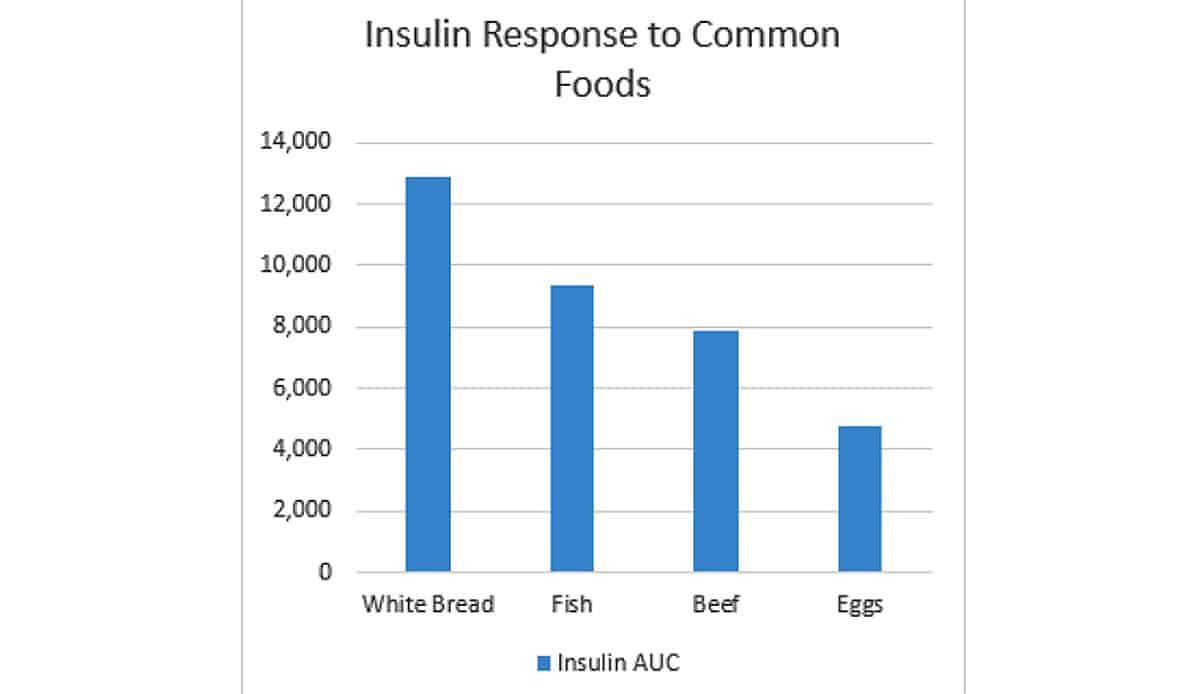(This is Part 2 of a series on leptin: to catch up on Part 1, go here.)
To quickly review from Part 1:
- Leptin is a hormone. It’s made in fat tissue. Low levels of leptin send a “starvation alarm” to the brain, triggering fat storage.
- Obese people are leptin resistant; they need more leptin to keep their brain out of starvation mode.
- Leptin supplements do not help obese people lose weight, and aren’t available to most of us anyway.
Now for the encouraging part: take a look at some ways to manage leptin levels without actually taking leptin supplements at all.
Better Alternatives to Leptin Supplements
Since leptin injections require a doctor’s prescription, they’re pretty much off the table for most of us. But even without the big guns, it’s possible to improve your own leptin sensitivity in various ways. Most leptin resistance is acquired, not genetic. There are a very few people who genetically have leptin problems, but more often, it’s something that developed over time, in response to (you guessed it!) diet and lifestyle. And that implies that diet and lifestyle might also be a way to alleviate the problem.
The two goals for improving leptin levels are:
- Reduce leptin needs by reducing leptin resistance.
- Increase leptin production from sources other than fat mass, reducing the amount of fat you need to keep that “starvation alarm” turned off.
Reduce Leptin Resistance
Insulin and Leptin Resistance

When it comes to reducing leptin resistance, the first place to look is insulin. Leptin and insulin are buddy hormones. Insulin is mostly associated with carbs, but this is actually not accurate: protein also raises insulin levels. Unless you’re eating tablespoons of pure fat, your meal is provoking some kind of insulin response. You can see the insulin response to some common foods in the chart to the right: Paleo foods are lower than white bread, but nothing near zero.
Higher insulin levels raise leptin levels. In people with a healthy metabolism, this isn’t an issue, because insulin levels return to normal after a meal, taking leptin levels back with them. For people with insulin resistance, though, this spells trouble. Chronically elevated insulin levels mean chronically elevated leptin levels, which means leptin resistance is a hop, skip, and a jump away. Remember from Part 1 that leptin resistance is one of the main reasons why it’s so hard for obese people to lose fat; this is something to avoid if possible.
The obvious solution for improving leptin sensitivity is to improve insulin sensitivity. In a nutshell…
- Find a carb level that works well for you. Some people do well on low carb; other people don’t. Don’t be dogmatic about following someone else’s program; do what makes your body happy.
- Focus on fat, not protein. You can see from the chart above that protein also causes an insulin response, so ultra-high protein is not the answer!
- Get some kind of exercise regularly. Consistency beats intensity; there’s no cause to murder yourself with burpees if you’d rather go for a walk.
Avoid sugar.
If you’re eating Paleo, you’re already doing this. But that might be one reason why Paleo weight loss is often easier: sugar (and particularly fructose) seems to have a disproportionate effect on leptin resistance. A caveat though: most of these studies were done in mice, and many of them used ridiculous dietary levels of fructose (no free-living human would choose a 60% fructose diet). On the other hand, here’s a study done in humans suggesting the same thing (that fructose is more likely to create leptin issues than glucose). So go easy on the honey while you're trying to normalize your leptin levels.
Reduce Inflammation.
There’s a two-way feedback loop between elevated leptin levels (as in obesity) and chronic inflammation. Inflammation raises leptin levels, and too much leptin is inflammatory. The result is what this study calls “a loop whose components influence each other in promoting inflammation:" in other words, a vicious cycle.
This suggests that lowering inflammation might be a helpful strategy for managing the leptin abnormalities associated with obesity. From a diet and lifestyle perspective, that means…
- Easy on the Omega-6. Avoid vegetable oils, and limit nuts and seeds.
- Turn up the Omega-3. Eat more fish and seafood.
- Reduce stress. Nobody likes to hear it, but there is a point where your health starts to suffer from being "too busy" all the time.

Increase Leptin Production (from sources other than fat)
The second way to manage leptin levels for easier weight loss is to maximize your leptin production from sources other than body fat. The more leptin you get from other places, the less body fat you’ll need to keep yourself out of starvation mode.
Calorie Cycling
First up is calorie cycling. Unless you’re trying to diet via double amputation, losing weight implies a reduction in fat mass. The problem with this is that a reduction in fat mass means a reduction in leptin levels, and if leptin levels get too low, they’ll kick off that pesky “starvation alarm” and sabotage all your weight-loss efforts.
Calorie restriction also lowers leptin levels independently of fat mass. One way to avoid this is to schedule a “leptin reset day” by significantly raising your calorie intake once every week or every two weeks. This does not have to be unhealthy food, but it has to be carbs. Eating a lot of fat is very tasty, but it won’t do much for your leptin levels. So bust out your favorite safe starch and eat a massive pile of it: why not go for some mashed potatoes with pesto, or maybe a sweet potato stuffed with fruit and nuts? After all, if you’re going to be indulging in a rare calorie/carb splurge, you might as well make it delicious.
Get enough sleep
You know a great way to send leptin levels through the floor? Staying up all night. In this study, for example, average leptin levels dropped by 20% after 6 days of mild sleep deprivation. So get your shut-eye!
Summing it Up
Leptin was only discovered in 1994 – that’s barely enough time to start looking into what it does and how it works. Researchers are still debating exactly what it does (for example, whether it works as a satiety hormone, or whether it’s more a response to starvation). We’ve come a long way from the simplistic idea that injecting obese people with leptin would make them thin, but we certainly haven’t figured it all out by a long shot.
What we do know is that leptin is important – maybe even more important for weight management than insulin. Leptin resistance can put a damper on your weight-loss results no matter how much “willpower” you think you have: nobody can hold out forever when their brain literally thinks they’re starving to death.
It’s still way too early in the game to have anything like a comprehensive list of strategies for managing leptin, but some good bets are:
- Maintain healthy insulin levels
- Get enough sleep, avoid chronic stress, and otherwise reduce inflammation
- Consider a carb re-feed every few weeks
Do you have any other tips that help you manage leptin levels? Let us know on Facebook or Google+





Leave a Reply